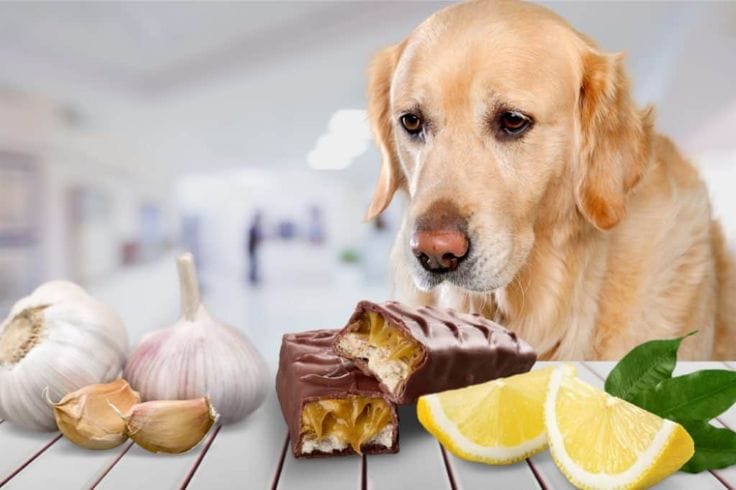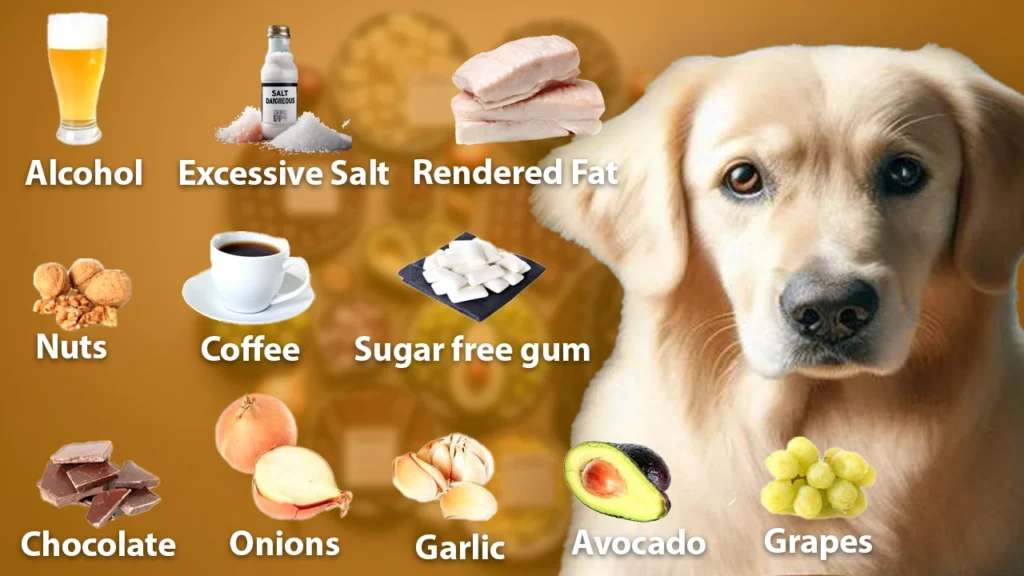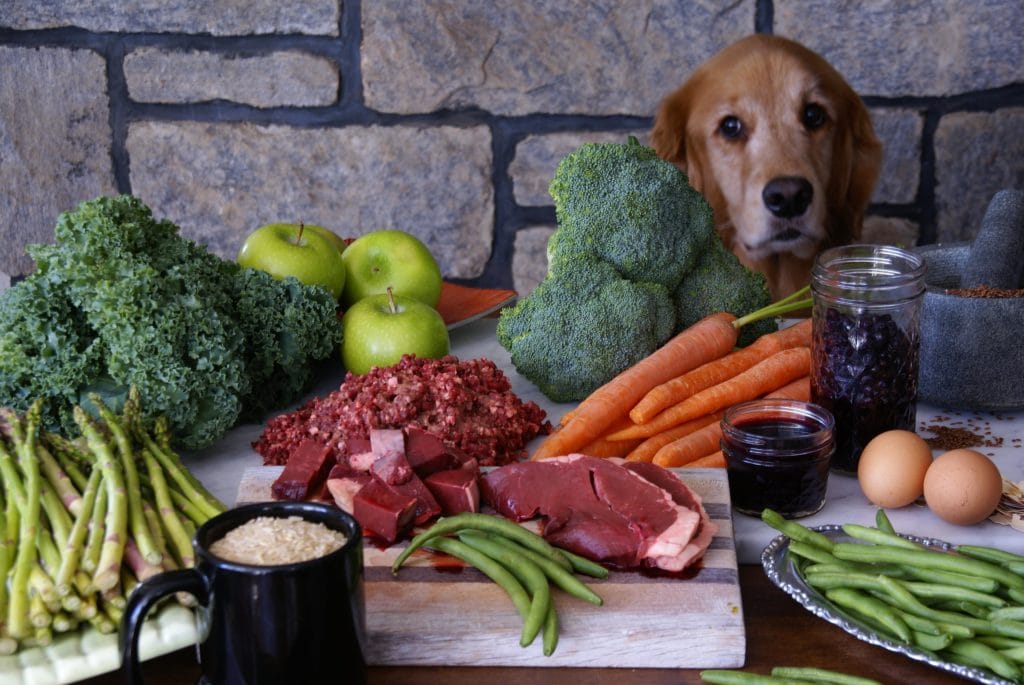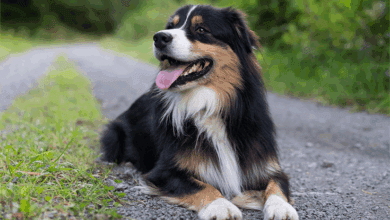
10 Ingredients to Avoid in Dog Food | A Detailed Overview
When you think about your pet’s healthy lifestyle, food is the first thing that pops up in any pet owner’s mind. Not every food is considered nutritious for your feline friend. It can be tricky and time consuming to find the right pet food, particularly with lots of options in the market. Additionally, you have to think about your dog’s breed, food type, and personal preferences.
Whether you visit the market or prefer an online store, it takes a lot of consideration to pick the food that completely aligns with the health chart of your pet. That’s because stores or online retailers might claim to provide nutritious and healthy dog food, but still, they probably contain harmful ingredients that can impact your dog’s health. In this helpful blog by Pet Life Expert, we’ve compiled a list of the top 10 ingredients to avoid in dog food. Plus, we’ll be explaining why it is necessary to read labels before shopping for dog food.

Why Avoid Harmful Dog Food Ingredients?
Nutrition is a complex topic when it comes to the wellness and safety of your dogs. When you purchase food with little to no nutritional value that simply works as fillers and preservatives, it won’t suit your pets, and in some cases, it can put your dog’s life in danger.
Therefore, your pet’s diet plays a major role in the longevity and health of dogs. In addition, the intake of harmful ingredients could result in certain infections, obesity, digestion system issues, and even cancer. When you understand what to avoid, making choices becomes better.
Tips on How to Read Dog Food Labels?
While label reading feels like decoding a foreign language, it’s mandatory to have a look at it. When you pick a product, make sure to read at least the first 5 ingredients from which most of the product is made.
In addition, never purchase food items with major ingredients such as “animal fat” and “meat meal”. Food with these ingredients means the product is of low quality. Therefore, you must look for products with specific ingredients like “beef” and “chicken.”
List of Top 10 Ingredients to Not Include in Dog Food
Here’s the list of ingredients to avoid in dog food:
1. Artificial Preservatives
Some of the most common antioxidants used in dog food are BHT (Butylated Hydroxytoluene) and BHA (Butylated Hydroxyanisole). While these chemicals are meant to enhance the shelf life of dog food, you must be aware of the health risks of BHA and BHT in dog food, and their presence is worrying. These preservatives are often found in canned dog food and kibble. You can prefer rosemary extract and Vitamin E instead.
2. Rendered Fat
One of the most nondescript and low quality fats added to dog’s food is rendered fat. The purpose of this fat is to enhance the food flavor. It comes from unknown and unidentifiable resources and contains a high level of toxins, like heavy materials. Due to its fat content, rendered fat often becomes the breeding ground for mold and other bacteria like salmonella, leading to potential health risks for your dog.
3. Soy and Soy Products
Another product that is used as a cheap filler for dog food is So. This soy is typically used to bulk up dog food. While it works as a filler, it’s a common allergen that can disrupt your dog’s hormonal balance. Not to mention, this hormonal balance can lead to thyroid and other relevant issues to a dog’s health.
4. Excessive Salt
Although salt is an essential ingredient in your pet’s food, its excess can be problematic. That’s because it leads to salt poisoning, high blood pressure, and dehydration. Never forget to check the amount of added salt on the label of that particular product. Also, avoid foods with high sodium levels.
5. Propylene Glycol
When it comes to the purchase of semi-moist food, you’ll find most products with Propylene glycol chemicals. This chemical is used to maintain moisture levels in that particular dog food. Propylene Glycol is a common anti-freeze ingredient that can be harmful to dogs because it can affect their red blood cells, leading to poisoning.

6. Meat By-Products
Sometimes, you find dog food with questionable and unlabeled meat that is of low quality, infected, and contains a low nutritional value. This meat in dog food is usually the leftover animal parts that aren’t eatable by humans, like bones and organs. No doubt, they offer some nutrients, they have a certain amount of bacteria.
7. Carrageenan
There comes another ingredient often found in wet pet food called “Carrageenan.” Derived from seaweed, it is a thickener that is not good for dog’s health. Research proves it’s linked to certain inflammations like ulcers. Also, it can cause gastrointestinal problems and even lead to cancer.
8. Sweeteners
When you go to purchase sweet food items like gum and candy that are usually eaten by humans, it contains Xylitol. It is an artificial sweetener that is said to be extremely toxic to a dog’s health. This sweetener can cause sudden seizures, low sugar levels, liver failure, and even death.
9. Corn Syrup
Another toxic ingredient in pet food is Corn syrup, which is a cheap sweetener. This sweetener is typically used to add more flavor to dog food. Also, this syrup doesn’t have much nutritional value. Also, it can cause diabetes and lead to obesity in dogs, just like humans.
10. Artificial Colors
Dog food also contains artificial colors to make the product appear good. Blue 2, Yellow 5, and Red 40 colors have no nutritional worth rather than just being color changing elements. However, these artificial colors are the main cause of allergies in dogs and lead to some behavioral issues as well.
Tips for Choosing High-Quality Dog Food
When shopping best quality dog food, keep these factors in mind:
1- Check Ingredient Names
Select food with specific proteins like “chicken” or “beef” rather than going for ambiguous terms like “meat meal”.
2- Always Avoid Fillers
Get best dog food without fillers as these fillers contain elements with low nutritional worth like corn, soy, and wheat.
3- Prefer Natural Preservatives
Always pick food items with natural preservatives like vitamin C (ascorbic acid) and vitamin E (mixed tocopherols).
4- Consider Dog’s Specific Needs
Not every dog is same, so, pick the suitable and healthy diet formula according to their breed, size, and health condition.

Common Myths About Dog Food Ingredients
Here, we’ve mentioned some misconceptions about using unsafe additives in dog food.
Myth 1: Only Grain-Free Diets Are Best
Although grain-free diets are good, but there are some bad dog food ingredients to avoid ensuring their health. Some grains and artificial preservatives in dog food can also be a good source of nutrients.
Myth 2: All By-Products Are Bad
You cannot label all by-products to be harmful. Because High-quality by-products like liver and dog food with no artificial colors can be nutritious. It is advised to avoid vague terms and look for label transparency.
Myth 3: More Expensive Food Is Always Healthier
Pricy foods don’t always mean the best quality. That’s because, some high quality foods still contain artificial ingredients and fillers. So, make sure to read the label and checklist properly.
It’s A Wrap
Selecting the right dogs food is crucial to maintaining balance in diet and ensuring health integrity. However, when it comes to buying food items, you can select products randomly. Rather, you need to evaluate the product for certain ingredients. Our list of harmful ingredients will totally help you know what dog food ingredients to avoid and find high quality, health-friendly food for your dog’s health. Also, never forget to read the labels, ask queries, and consult a vet to get suitable food for your dog. This way, you can help your feline friend have a long and healthy life!
FAQs | Frequently Asked Questions
How To Identify Harmful Ingredients on a Dog Food Label?
It is suggested to read the ingredient list on the food packaging. Usually, these ingredients are listed in descending order by weight, so you must avoid the product with questionable ingredients.
What Alternative Ingredients to Look for in High-quality Dog Food?
Yes! The primary ingredient that your alternative product must include is real meat. Additionally, pick foods with fruits, vegetables, whole grains, fish, and other elements with vitamins and fiber.
Are all Commercial Dog Foods Worth It?
Not all commercial dog foods are bad or vice versa. Various reputable brands make products with high quality ingredients. Make sure to have a brand background checked, view the ingredient list, and prefer food that meets AAFCO standards to ensure a healthy diet.
Is Popcorn Bad in Dog Food?
Popcorn is only safe in dog food when it is plain and air-popped without any salt, butter, and cheesy flavors. Make sure to give only the small quantity of popcorn to your dog.
Are Meat by-products Bad for Dogs?
No! Meat by-products are not bad for dogs, rather it’s a safe and nutritious protein and nutrient source. But it should not be a part of regular dog diet plan.
What Ingredients to Avoid in Dry Dog Food?
When selecting healthy dry dog food, it’s crucial to avoid certain ingredients BHT, BHA, and ethoxyquin. Also, artificial preservatives, fillers, corn, syrup, wheat, soy, rendered fat, and gluten.
What Ingredients to Avoid in Dog Food for Skin Allergies?
To get relief from skin allergies, never give dog food containing common allergens like dairy, eggs, wheat, corn, soy, beef, and chicken. Additionally, avoid foods with artificial additives and low-quality protein sources.



